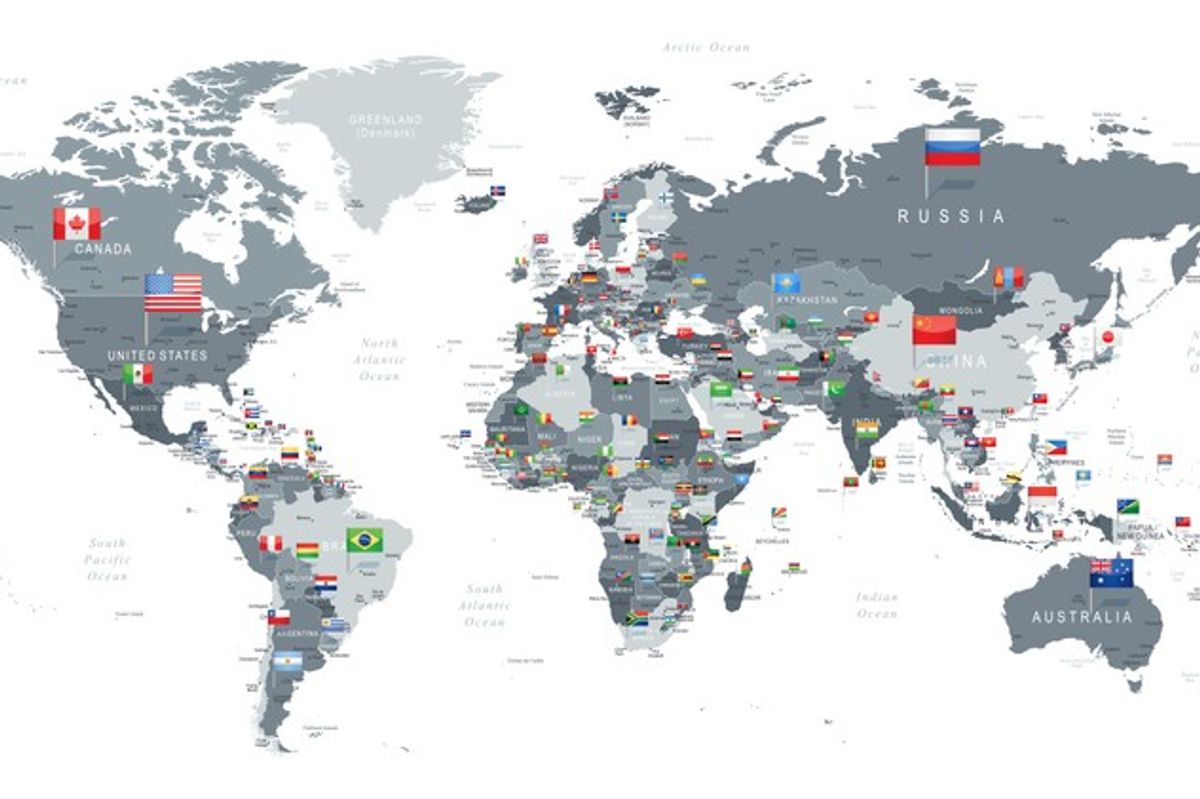British Prime Minister Theresa May triggered Article 50 of the Treaty of Lisbon today (March 29), formally notifying the European Union of the United Kingdom’s intention to withdraw from the bloc and embarking on two years of negotiations with the other 27 EU members.
“This is an historic moment from which there can be no turning back,” she said. It came moments after Britain's EU ambassador formally triggered the UK's exit by handing over a letter to EU Council President Donald Tusk. Tusk responded by holding up the letter saying, “We already miss you. Thank you and goodbye.”
If the negotiators don’t come up with a deal by March 2019, there are two possibilities: Either the EU member states and the UK reach a unanimous agreement to continue negotiations or the two parties are left with no deal on trade, migration, security, and other pressing issues. That means negotiators will be working hard over the next two years. But they will face a number of hurdles.
One of the first challenges will be over how much money the UK will owe the EU for leaving and when it should be paid. UK Brexit Secretary David Davis said the bill will be “nothing like” the 50 billion Euros estimated by European Commission President Jean-Claude Juncker.
Access to the EU’s single market is sure to be one of the most contentious points in the negotiations. The single market allows the free movement of goods, services, and workers between its members. EU leaders have said that the UK cannot have access to the single market if it restricts the free movement of people. Brexit supporters strongly opposed unrestricted migration throughout the referendum campaign. May has pledged to honor those concerns by controlling migration. She has said that she will push for the “freest possible trade” with European countries but has insisted that the UK absolutely will not remain in the single market.
Another divisive issue is what is to become of EU nationals living in the UK and UK nationals living in EU nations. A document from the UK’s Department for Exiting the European Union recommends that EU nationals already living in Britain on the date Article 50 is triggered continue to receive their welfare rights, and specifically, child benefits to send to families back home. “We have said we want to secure the rights of EU nationals already in the UK, and UK nationals in the EU,” a UK official said.
But that position says nothing about Britain’s future immigration policy. “There’s no particular reason why Poles should be favored over Sengalese once [the British] withdraw from the union,” Steven Schneebaum, an international law attorney based in Washington, tells The Cipher Brief.
Businesses are already making contingency plans, betting on the possibility of highly restrictive immigration policies in the future. “A lot of foreign nationals may no longer have the right to work in the UK,” Howard Rosenberg, co-founder and CEO of corporate intelligence provider Decipher, tells The Cipher Brief. “And if they start losing that war for talent, in terms of retaining staff, then that’s a big lever [for businesses to leave London].”
Goldman Sachs has already confirmed it will shift “hundreds” of employees away from London and to other European locations. But Rosenberg, who lived and worked in London for many years, says things are not as bad as expected – “no major shakes to the market place… I think people are just either heads down or they’ve got it out of mind.”
“I have a theory,” adds Rosenberg, “that if things got really bad in the UK, then obviously one of the options would be for the UK government to treat itself as a de facto tax haven and slash the corporation tax.” The idea that one of Europe’s largest economies could turn itself into a tax haven has sparked outrage from senior EU figures, who complain that Britain already is one. Government figures show that the UK’s corporate tax has fallen by 78 percent since 2006. It is now at 20 percent, the lowest among the G-7 group of major economies.
Then there’s the issue of security and defense. The UK is the biggest defense spender in Europe and a huge provider of defense capabilities to the continent. Nigel Inkster, former Assistant Chief and Director of Operations and Intelligence for the British Secret Intelligence Service, tells The Cipher Brief that because “the UK is seen as a very substantial net contributor to European security capabilities, and the Europeans will want to keep it that way, [security] will be one of the issues least likely to be affected adversely by Brexit.”
Britain has an interest in maintaining security cooperation with the EU to address joint threats. “At every stage of the process the Prime Minister has been clear about the importance of ongoing cooperation on cross-border crime and security threats with EU Member States,” a British official tells The Cipher Brief. “As we exit, we will therefore look to negotiate the best deal we can with the EU to cooperate in the fight against crime and terrorism.”
Yet the logistics of information and intelligence-sharing once Britain leaves the EU are unclear. The EU has both civilian and military intelligence agencies that collect intelligence from member states. “Brexit could really impact cooperation within the EU in a negative way,” says Brigadier General (ret.) Jarosław Stróżyk, former Polish Defense Attaché to Washington. “The British intelligence is always well-informed. They are a very robust and skillful organization. So that will be a real loss for the EU intelligence assets.”
Stróżyk, who served as Deputy Director of the Intelligence Division in NATO’s International Military Staff, tells The Cipher Brief that post-Brexit, “there will be mainly NATO cooperation and then bilateral cooperation [with the UK on intelligence-sharing].”
A complicating factor is the devolved governments of Scotland and Northern Ireland. Scottish First Minister Nicola Sturgeon is pushing hard for a second referendum on Scotland’s leaving the UK, given that a majority of its citizens voted to stay in the EU in last summer’s Brexit referendum. Northern Ireland’s nationalist Sinn Fein party, which is now just one seat behind the leading unionist party after parliamentary elections on March 15, is calling for a referendum on leaving the UK. “There is broad popular support for Northern Ireland remaining in the EU, and this crosses party lines,” Dan Hamilton, Executive Director of the Center for Transatlantic Relations at Johns Hopkins SAIS, tells The Cipher Brief.
Desmond Lachman, a resident fellow at the American Enterprise Institute, says he doubts that Northern Ireland will hold a referendum, but that if it “could join the Republic of Ireland, which is an existing member of Europe ... it would be a lot easier for Northern Ireland than for Scotland to leave the UK yet remain in Europe.”
Both sides in the Brexit negotiations are already putting up tough fronts. “No deal for Britain is better than a bad deal,” May warned last January.
“We have no interest in punishing the UK, but we also have no interest in putting European integration in danger over the UK,” German Finance Minister Wolfgang Schäuble said – although the results of upcoming German and French elections could shift the tide in two of the EU’s largest and most influential members.
To ease the transition process – and minimize political uncertainty until the German and French elections are over – the plan is to first, transpose European law into UK legislation through the UK’s so-called Great Repeal Bill and second, take a phased approach to implementation of areas of agreement.
Kaitlin Lavinder is a reporter at The Cipher Brief. Follow her on Twitter @KaitLavinder.












